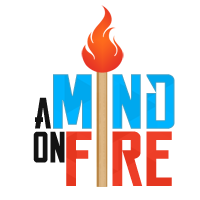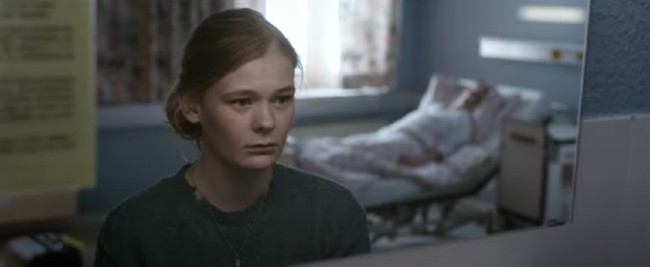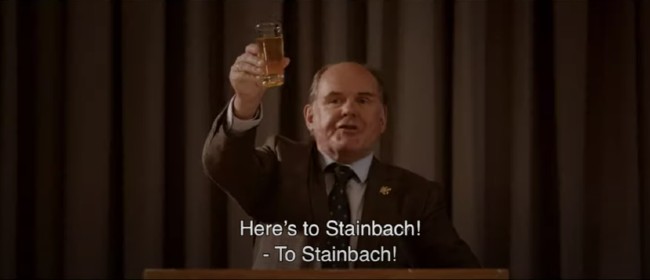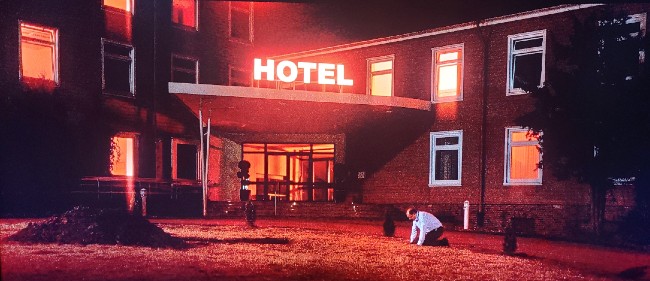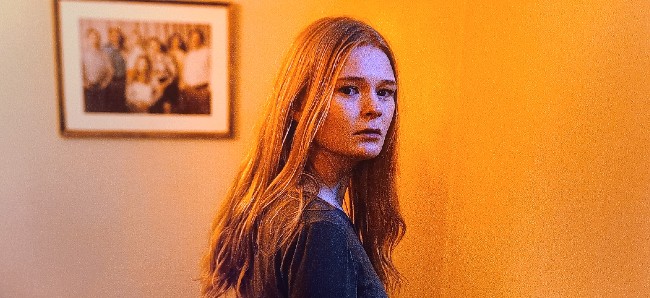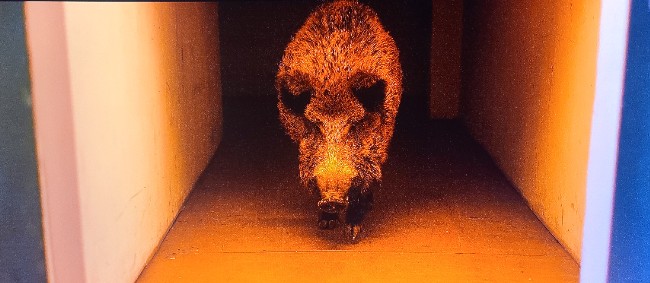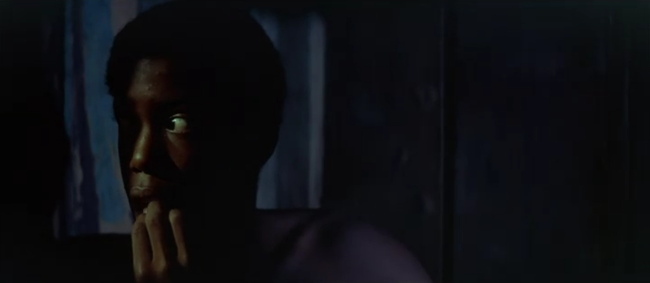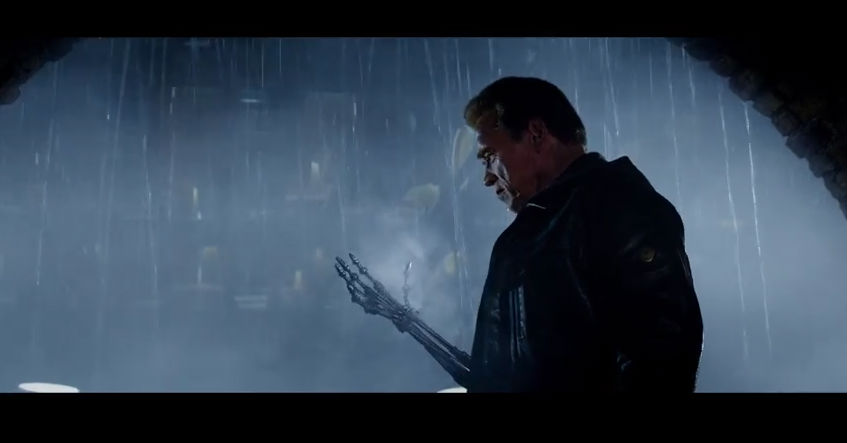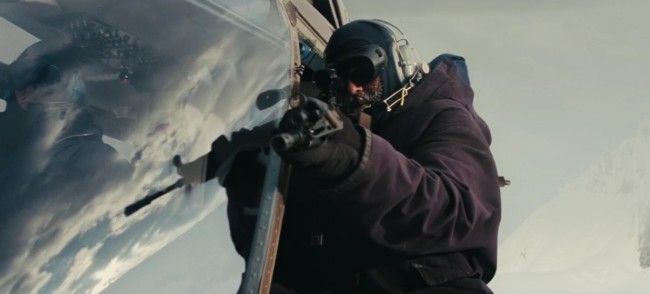Don’t Sleep on Michael Venus’s Sleep
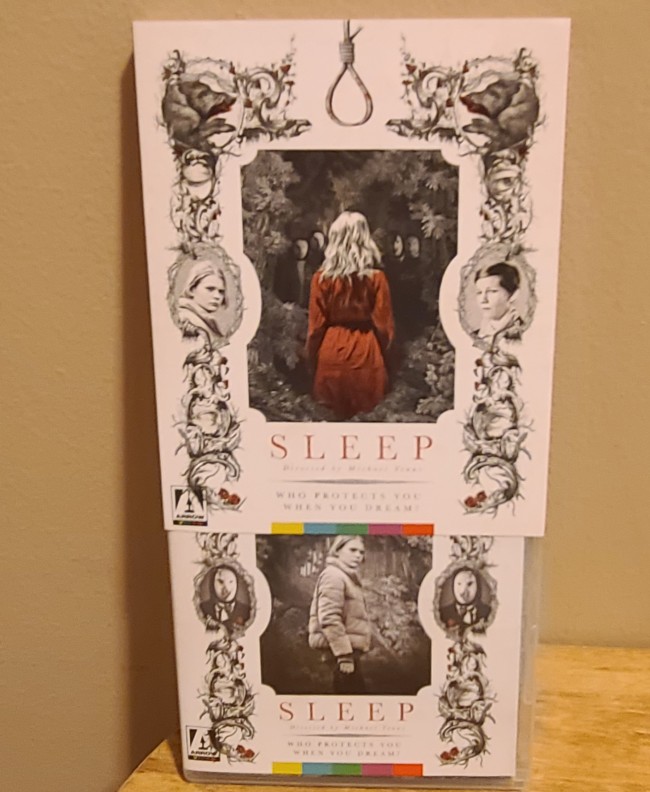
Director Michael Venus’s Sleep is a psychological horror masterpiece involving dreams, Nazis, and buried traumas.
(Spoiler free as possible) Sleep. Some of us get enough of it while others don’t. For those with insomnia it’s a precious commodity. With sleep one hopes dreams will come. Scientists have estimated the average person has around eight dreams a night. Some dreams are forgotten moments after we’ve woken up. The good dreams seem to fade like fleeting memories. More often than not it’s the bad dreams, the nightmares, we remember. Nightmares are at the heart of Michael Venus’s first feature Sleep.
Marlene, a flight attendant, has been having nightmares for quite some time. Nightmares may not be the best description for what Marlene has been dealing with. Night terrors seems to be a better description. It’s apparent these nightmares have taken a toll on her mental well being. She has notebooks full of drawings she saw in her dreams. Dream notebooks are nothing new. Authors have long kept dream notebooks. The only difference is that Marlene’s nightmares may be closer to reality than she or her daughter think.
WHAT DREAMS MAY COME
Marlene had three dreams of three different men, three men who all committed suicide. We later learn that “everyone knows” that the men committed suicide. But why would a woman with no connection to the men and who lives no where near them have specific knowledge of their deaths? Her fourth dream of an unknown man at a hotel she has never been to spurs her on to seek out answers.
While at the hotel Marlene has one last nightmare capped off by an appearance of a hair, wild boar. Whatever Marlene’s dream was about, and we may never know exactly, it puts her in a catatonic state. A state which she remains in for most of the film. When Mona receives a phone call regarding her mother’s condition she decides to stay at the same hotel. It’s not long after Mona starts having weird dreams herself.
Early on we’re lead down a path of confusing dreams. Dreams that seem to make no sense: a woman in red standing in a forest, Mona in an avant-garde orgy. But all these dreams center around a blonde haired woman named Trude. It also becomes abundantly clear that Mona and Marlene are sharing the same dreams. What Mona experiences Marlene, in her catatonic state, experiences.
Sleep isn’t the kind of movie that keeps its audience in limbo for very long, but it does lead the audience into some very dark corners. These dreams lead to a dark family past. The family dyanamic is as strange as Mona’s dreams. Otto, the hotel owner, is called father and husband by Lore. Otto calls Lore his wife and daughter. He calls his one son his son-in-law. It boarders on incest in name if not in practice. Otto may also be a Nazi.
DREAM ON DREAM ON OF BLOODY DEEDS AND DEATH
When Mona enters Stainbach she is greeted by a sign that reads “Fertile Ground For Wealth and Progress.” Your not far off the mark if it rings like a slogan used in Nazi Germany. Otto speaks of the “National defeat.” We know he’s not talking about a soccer match. If there was any doubt of his political leanings they are put to rest during a speech he gives at what his son, Christoph, calls his Nuremberg Rally.
The children of the generation that proceeded World War II, what Americans called the Baby Boom, asked many questions about their parents involvement in World War II and in Nazi Germany. Directors like Rainer Werner Fassbinder asked questions through film. Fassbinder’s contribution to the overall discussion of guilt and culpability helped in the creation of the New German Cinema Movement.
However, we are at a point in time where proceeding generations share no culpability in the actions committed by their grandparents. It’s not readily available if Venus and screenwriter Thomas Friedrich feel any guilt, imagined or otherwise, but in Sleep the character of Otto is carrying on the work of his parents’s generation. His Nazi ideologies play a large part in what brings Marlene and Mona to the hotel in the first place.
WE ARE SUCH STUFF AS DREAMS ARE MADE ON
How much can an infant remember? If, as data has shown, a person’s earliest memories are from around the ages of two to four it would be highly unlikely that Marlene could have any memories of being an infant. Even a traumatic an event as the one baby Marlene had may be completely forgotten by the time she reached adulthood. It’s only through dreams that Mona, and by proxy Marlene, start to remember past events of a grandmother and mother, of men in pig masks, and the fate of baby Marlene.
Although the Nazi theme is strong on Sleep really what’s going on in Sleep. Sleep isn’t even about healing trauma caused by Germany’s dark past that in recent years seems to be making a come back. Sleep is a story of revenge albeit a revenge story told through hallucinatory dreams and lighting rarely seen this side of a David Lynch film or the best of giallo horror movies.
Like a good Lynch film or the best giallo movies there has to be a monster. The monster in Sleep very well may be Trude. Trude is called an incubus in a lullaby Otto plays for Mona. Is Trude an incubus? In myths an incubus is a male demon, a succubus is a female demon. What’s more important than whether or not it’s a male demon or a female demon is the word itself.
The word incubus is derived from the Latin word incubo which means “a nightmare.” If Trude is an incubus than she would have the power to enter dreams. It was no coincidence or dream that brought Marlene and Mona to Stainbach, but Trude trying to avenge a past wrong. Revenge may be a dish best served cold but in Sleep it’s served through dreams.
TO SLEEP PERCHANCE TO DREAM
Ambiguous endings have become the hallmark of director Christopher Nolan’s movies. Director Michael Venus leaves us with a somewhat ambiguous ending to Sleep. Questions may remain as to who is related to whom or if Lorne is Otto’s wife or daughter, but we know why as a baby Marlene was left on the steps of an orphanage. We know the trauma Otto has inflicted on his family and Trude. What remains to be answered: “Is Mona still sleeping?,” “Is Marlene the sleeper?” or are they both sharing the same dream at the same time?
Franzi, an employee at the hotel, asks Mona “Do you ever wake up and your dream is still there?” There are hidden clues as to whether or not Mona is still asleep. Once you figure out the clues you may think you know the answer until Marlene asks “Am I awake?” It’s the thought that they may still be in a dream that will stay with you because Sleep is a movie that is not easily forgotten.
SPECIAL FEATURES
(Full disclosure: The review was written before watching the special features) The blurb on the back of the Blu-ray says Sleep brings German folklore and fairy tales. It would be difficult to see the influence of German folklore in Sleep if you weren’t already familiar with German folklore.
Thankfully the Arrow releases has several featurettes to enlighten us on German folklore and other elements found in Sleep. Alexandria Heller-Nicholas takes us on a tour of masks and their meanings in relation to horror movies, Sleep, and history. Any featurette not on a Motel Hell DVD that references Motel Hell can’t be that bad. Film critic Anton Bitel ties the game Jenga into the fragile foundations built in Sleep. In Dream and Folktale in Sleep anthropologist Louise S. Milne takes a deep dive into the fairy tales of The Grimm Brothers and how their fairy tales and horrors play out in the movie.
Although a lot of the same territory is covered in the special features it’s still a testament to the movie that it can create other wise diverse perspectives. Each featurette is worth your time to watch. In fact, they may shine some light on aspects of the movie that you may have missed.
